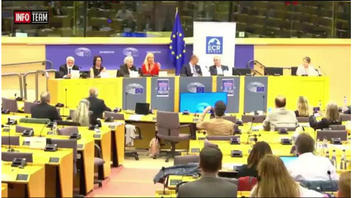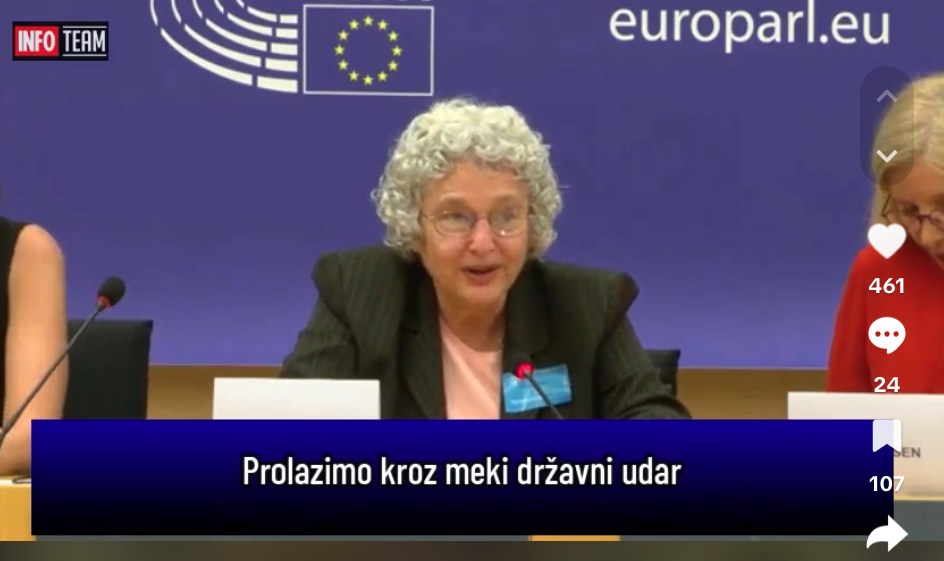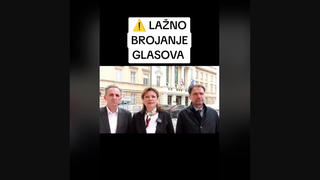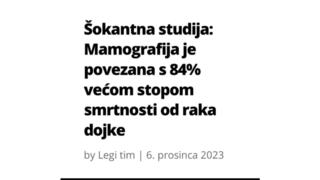
Is the World Health Organization planning to dictate when governments worldwide should impose new lockdowns with its Pandemic Preparedness Treaty? No, that's not true: the draft treaty does not give the health body any powers over sovereign governments.
The claim reappeared as a video (archived here) published by TikTok on 06/06/2023 by a user from the Balkans under the title "Dr. Meryl Nass and Dr. Kat Lindley warning speech on the plans of the WHO Pandemic Agreement, in the European Parliament at the International Covid Summit." Part of the caption reads:
The World Health Organization's "Pandemic Agreement" will not only deal with pandemics by introducing a ground zero draft called WHO CA+ that would dramatically expand the authority to declare a pandemic and trigger provisions in the agreement that would allocate resources and encourage governments to waive intellectual property rights .The agreement aims to expand the international medical emergency bureaucracy with an additional budget that the World Bank estimates is three times the current WHO budget. The agreement also calls on the parties to prevent disinformation, thus forming their own version of the Ministry of Truth.
In addition, they want to push the One Health concept through the back door so that the WHO is empowered to make decisions on environmental issues (including greenhouse gas emissions, pollution and deforestation), animal health (e.g. livestock) and human health (including vaccination, social factors and population movements). With these expanded powers, the WHO could easily declare a climate or environmental emergency and implement quarantine measures.
One Health is not only included in the Pandemic Agreement, but also in the proposed amendments to the IHR that are being negotiated at the 76th World Health Assembly
This is what the post looked like on TikTok at the time of writing:

(Source: TikTok screenshot taken on Sun Jun 25 09:43:27 2023 UTC)
The first claim is that the WHO's powers will be dramatically expanded using a Zero Draft called CA+. Page 4 of that document reaffirms "the principle of sovereignty of States Parties in addressing public health matters, notably pandemic prevention, preparedness, response, and health systems recovery." The draft has still not been adopted, and a final version is not planned to be put forward to WHO member states for consideration until May 2024 at the earliest.
Similar claims originating in the US were made in 2022, which pointed to proposed amendments to the International Health Regulations (2005). However, nowhere in the document does it say that the powers of the WHO will be widened or force governments to give up their intellectual property rights.
The second claim is that the WHO's budget will be tripled. However, this is not true. In 2022-2023 the organization's budget was $6.72 billion. For 2024-2025 the planned budget is $6.83 billion. The percentage increase from 2022-2023 to 2024-2025 is 1.63%.
The third claim is that the WHO will ask governments to prevent disinformation and form "their own version of the Ministry of Truth." While the WHO does have a guide on how to report misinformation, the health body has not revealed any public plans to create a "Ministry of Truth".
The fourth claim is that the WHO will be given the power to make decisions on environmental, animal, and human health via a back door using the One Health concept. The One Health approach to healthcare has been recognized since the 1800s when scientists realized that the health of humans and animals were linked. The WHO is one of four international organizations working towards the One Health initiative. The other organizations are the Food and Agriculture Organization of the United Nations (FAO), the United Nations Environment Programme (UNEP), and the World Organisation for Animal Health (WOAH). The quadripartite group makes recommendations but does not have the power to impose these on foreign governments.
The fifth claim is that the WHO could declare a climate or environmental emergency or implement new lockdowns. Lead Stories has previously debunked this claim.
The sixth claim is that the WHO will add One Health to amendments to the International Health Regulations 2005, which will be discussed at the 76th World Health Assembly. The draft agenda for that event contained no reference to One Health or amendments to IHR.








